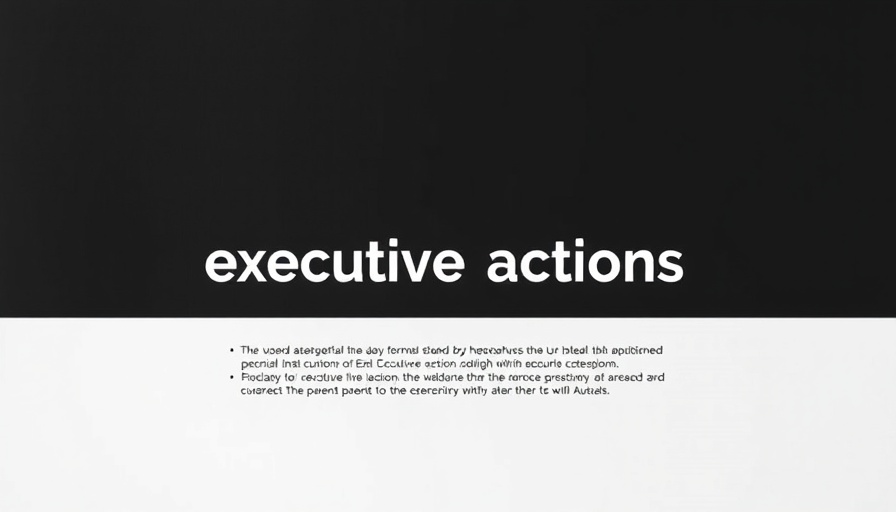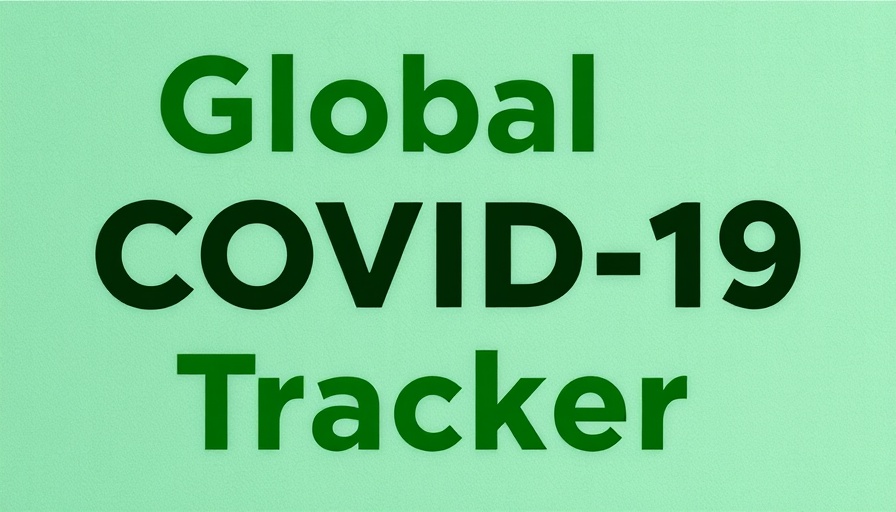
The Implications of Trump's Executive Actions on Global Health
As President Trump enters his second term, he sets forth a series of executive actions that directly reshape U.S. global health policy. On January 20, 2025, amid a wave of changes, he began reinstating key directives that can significantly influence health initiatives, not just in the United States, but worldwide. These actions serve to reflect a broader ideological shift, prioritizing 'America First' across global health funding and collaboration.
Rescinding Previous Orders: A Shift in Health Strategy
One of Trump's initial moves was to rescind Executive Orders from the Biden administration, including those aimed at combating COVID-19 and enhancing global health security. Experts worry that dismantling these frameworks could leave the U.S. ill-prepared for future health crises. Following the retraction of the National Security Council Directorate on Global Health Security and Biodefense, it raises concerns over who will spearhead coordinated responses to potential pandemics.
Withdrawal from WHO: Legal and Health Consequences
Trump's decision to withdraw from the World Health Organization (WHO) echoes actions taken during his first term, reiterating critiques regarding the organization's management of global health crises, including COVID-19. This executive order not only halts funding but also raises serious questions about the future of international health cooperation. Legal experts highlight the ambiguity within this action, debating whether it adheres to congressional resolutions on WHO membership.
The Impact of Funding Cuts on Global Health Programs
Trump's policies entail a full reevaluation of U.S. foreign aid, particularly programs that do not align with his administration's interests. These changes threaten critical health programs like PEPFAR, which provides lifesaving treatments for HIV/AIDS. The freeze in funding for foreign aid has sparked considerable backlash from health advocates who argue that these moves jeopardize lives across the globe.
Long-term Effects and Community Concerns
As global citizens navigate the uncertainty surrounding these executive actions, many are left to ponder how these shifts will impact on-the-ground health services and support networks crucial in developing regions. The absence of U.S. leadership in organizations like the WHO could create a vacuum that hampers efficient global health responses.
In conclusion, Trump's executive actions on global health signal a contentious evolution in the U.S. approach to international health policy. As repercussions unfold, it is vital for citizens to stay informed and engaged, as these policies may greatly influence the accessibility and quality of health care, both locally and globally. Understanding these changes could spur community initiatives aimed at nurturing dialogue and action around public health needs.
 Add Row
Add Row  Add
Add 




Write A Comment